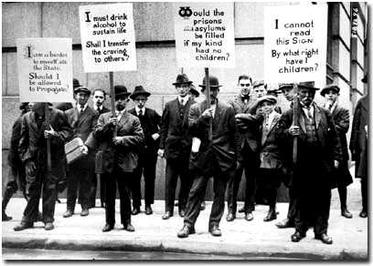A majority of House Republicans are taking aim at decreasing federal funding for reproductive health by changing the definition of rape in a newly-filed bill.
Currently, the federal government denies taxpayer monies to be used to pay for abortions, except in cases when pregnancies result from rape or incest or when the pregnancy endangers the woman's life.
However, if the 173 mainly Republican co-sponsors of the "No Taxpayer Funding for Abortion Act" have their way, that would all change. Instead of keeping the 30-year-old definition of rape in federal law, the bill would modify it to "forcible rape," thereby severely limiting the health care choices of millions of American women and their families.
In other words, rape would not be rape unless violence were involved; however, the term "forcible rape" was left undefined, leading some to speculate its meaning since it is also not defined in the federal criminal code or in some state laws.
"This would rule out federal assistance for abortions in many rape cases, including instances of statutory rape, many of which are non-forcible,"
Nick Baumann of Mother Jones wrote recently.
He continued, "For example: If a 13-year-old girl is impregnated by a 24-year-old adult, she would no longer qualify to have Medicaid pay for an abortion."
If the bill becomes law, parents of minors would also be banned from paying for pregnancy termination for their daughters with tax-exempt health savings accounts. Also, the cost of the private health insurance that covered the treatment would not be able to be deducted as a medical expense for tax purposes.
The bill introduced by Rep. Chris Smith (R-NJ) was the second major piece of legislation filed by the Republicans after its attempt to repeal "The Affordable Care Act." Speaker of the House John Boehner (R-OH) hailed Smith's bill as "one of our highest legislative priorities."
“A ban on taxpayer funding of abortions is the will of the people, and it ought to be the will of the land,” Boehner said on the 38th anniversary of the Supreme Court’s decision in
Roe v. Wade last week.
The bill would also deny other exemptions for rape victims who were drugged or given alcohol, who were mentally limited, and who were date raped.
The incest exception of the bill granted federally-funded abortions only if the woman is under 18.
Cecile Richards, president of Planned Parenthood Federation of America, said recently that Rep. Smith's bill marked a new beginning for future attacks on women's health. She noted that "a record number" of bills against women's health and family planning are currently filed in state legislatures.
"In fact, Rep. Mike Pence (R-IN) plans to introduce a bill that would strip Planned Parenthood of all Title X family planning funding, which has made it possible for millions of low-income women to choose and pay for contraception and other basic preventive health care since 1970," she said.
A November 2010
Hart Research poll [PDF] indicated that a majority of American voters who voted for a Republican candidate (71 percent) opposed the Smith bill.







